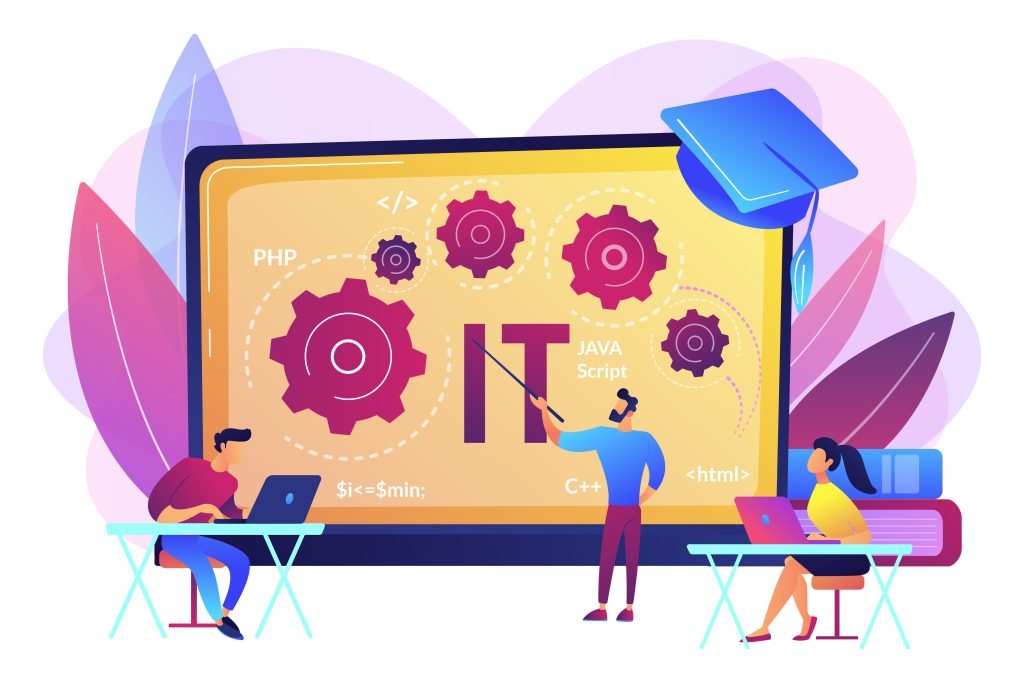The only thing that stays the same in the world of technology is change. As new technologies continue to change businesses and society, IT workers are at the forefront of developing new ideas and adapting to them. In fact, a study shows that 66% of companies plan to increase their IT budgets in 2024, with only 4% planning to decrease spending.
To do well in this fast-paced world, you need to learn the most important IT skills that will shape the future. Let’s look at some of the most exciting new tools and the skills you’ll need to use them fully.
YOU MAY ALSO LIKE: A complete Facebook data breach & privacy leak timeline (2005 to 2021)
Understanding Emerging Technologies
Let’s take a moment to understand how new technologies are changing the IT business before we get into specific digital skills.
AI & ML
AI and ML (artificial intelligence and machine learning) have changed many fields by letting computers learn from data, make predictions, and do jobs automatically. AI and ML can be used for many things, from apps and advice systems to self-driving cars and medical diagnosis. As computers get smarter and more data becomes available, AI and machine learning will likely lead to more progress in many areas.
Blockchain Technology
It became clear that blockchain technology is what makes cryptocurrencies like Bitcoin work. But it has a lot more promise than just digital money. Blockchain can be used for many things, like supply chain management, vote systems, and smart contracts, because it is open and safe. Blockchain has the potential to change old industries and make new business models by making deals clear, unchangeable, and trustworthy.
Internet of Things (IoT)
The Internet of Things (IoT) lets everyday items connect to the internet and share and collect data. IoT can change many areas, from smart homes and personal tech to industrial tools and smart cities. By using IoT data, businesses can improve their processes, make them more efficient, and give people more unique experiences.
Cybersecurity
Cybersecurity is still very important in a world that is becoming increasingly linked. Because online dangers are becoming more common, it is important to protect digital assets and networks. Firms are at risk of many dangers, such as ransomware attacks, data breaches, fake scams, and malware. Cybersecurity experts are crucial for finding weak spots, lowering risks, and protecting against cyberattacks.
Cloud Computing
Cloud computing is still becoming more popular, and businesses are starting to use cloud-based technology because it is scalable, flexible, and cheap. Computing power, storage, and databases are just a few of the services that cloud services like AWS, Azure, and Google Cloud offer. By moving to the cloud, businesses can lower their building costs, become more flexible, and focus on developing new ideas.
Important IT Skills for the Future
Now that we’ve discussed some of the most important new tools let’s examine the skills you’ll need to handle this changing world effectively.
Data Science and Analytics
People often say that data is the new oil, and they’re not wrong. Businesses that want to stay ahead of the competition need to be able to get useful information from huge files. To be good at data science and analytics, you must know a lot about computer languages like Python and R, machine learning techniques, and big data tools. Data scientists and analysts are very important because they find patterns, trends, and relationships in huge amounts of data. This helps people make smart decisions and helps businesses grow.
Artificial Intelligence and Machine Learning
As AI and ML keep improving, understanding them makes it possible to create new things and automate tasks. Knowing deep learning, natural language processing (NLP), and reinforcement learning are important skills. A type of machine learning called “deep learning” trains computer programs called “artificial neural networks” to learn from data and make predictions. NLP is the study of understanding and producing human language. It makes tools like robots, mood analysis, and language translation possible.
Agents learn to make choices by dealing with their surroundings and getting input. This is called reinforcement learning in machine learning. Professionals who know how to use AI and ML can make smart, more efficient systems, improve user experiences, and make processes run more smoothly.

The Growth of Blockchain
Decentralized and open systems made possible by blockchain technology could change many businesses. For blockchain programming, you need to know how to make smart contracts, use distributed ledger technology (DLT), and the basics of cryptography. The terms of a smart contract are put straight into code so that the contract will carry out itself. They make deals possible without faith and automate processes, so there is no need for middlemen.
Distributed ledger technology (DLT) is the framework that makes decentralized agreement and storage possible. Basic cryptography rules ensure that blockchain deals are safe and correct. Professionals who learn how to create for the blockchain can develop new ways to speed up processes, cut costs, and make deals more trustworthy.
Internet of Things (IoT) and Edge Computing
With so many IoT gadgets on the market, knowing how to manage and protect these systems is important. Integration of sensors, edge computing designs, and security steps to keep IoT devices and networks safe from online dangers are all important skills for IoT and edge computing. Sensor integration is all about connecting different sensors and gadgets to get information from the real world. Edge computing handles data closer to where it comes from, which cuts down on delays and internet use.
Edge computer designs let businesses look at data in real time, get the information they can use, and react to events more quickly. Security is very important when deploying IoT because linked gadgets can be attacked online. Professionals can protect IoT environments and private data by using security tools such as encryption, access control, and attack detection.
Safety online
Cybersecurity IT support skills are in high demand because online threats are getting smarter. To keep digital assets and networks safe, you must know how to do ethical hacking, crisis response, and security compliance. Ethical hackers find weak spots in systems and networks through penetration testing and vulnerability surveys. Cybersecurity events and leaks are found, analyzed, and fixed through incident response.
To protect customer data and stay out of trouble with the law, security compliance means following rules like GDPR, HIPAA, and PCI DSS. Professionals learning cybersecurity skills can help businesses lower risks, strengthen their security, and stay safe from online dangers.
Using the cloud and DevOps
Cloud computing is still the most important part of IT infrastructure, and DevOps techniques make software release quick and reliable. Cloud design, containerization, and continuous integration/continuous deployment (CI/CD) techniques are some of the most important core IT skills. Cloud architecture builds flexible and reliable cloud infrastructure using AWS, Azure, and Google Cloud systems.
Containerization is putting software programs and the libraries they need into small, lightweight containers that are easy to install and control. Docker and Kubernetes are two well-known containerization systems. CI/CD techniques automate the software development, from committing code to putting it into production. This speeds up release cycles and makes working together easier for the development and operations teams. Professionals can use cloud platforms’ flexibility, agility, and cost-effectiveness to speed up creativity and drive business growth by becoming experts in cloud computing and DevOps.
Conclusion
Because technology is always changing, keeping ahead means committing to learning new things and getting better at the ones you already have. Professionals can become stars in their area and drive innovation in a digital world that is changing quickly by learning these core IT skills they will need in the future.
Suppose you’re ready to take on the challenges of tomorrow. In that case, there are endless chances to grow and make a difference in data science, AI, blockchain, IoT, cybersecurity, and cloud computing. IT workers can get through the complicated digital age and change the future of technology by staying up to date, adjusting to new technologies, and improving their skills.
YOU MAY ALSO LIKE: What is privacy technology & why is it important for businesses?
Continue reading iTMunch for the latest social media news, articles, and new trends!
Feature Image Source: Image by creativeart
Image 1 Source: Image by vectorjuice





